Electric scooter rentals first hit the streets of Portland almost five years ago, during the summer of 2018, and they’ve since become a fixture in the city. Though once feared to be an agent of disaster, it seems like the panic over e-scooters in Portland has mostly died down over the last few years as people got used to their presence.
Today, Portland’s e-scooter program is in a state of flux. Even though the three companies that operate rental programs here —Lime, Spin and Bird — have all replaced their scooter supply over the past year and a half, the Portland Bureau of Transportation still hasn’t made its decision about which scooter company (or companies) will be integrated into a permanent system.
One thing seems certain, though: scooters are here to stay, so we thought it was time to check-in and take a closer look.
According to PBOT’s Shared Micromobility Snapshot for 2022, which the agency released Tuesday afternoon, 2022 was a “historic year for Portland’s Biketown and e- Scooter programs.” Regardless of which company becomes PBOT’s permanent scooter operator, scooter ridership is higher than ever and the devices are contending more and more with bikes as a means of personal transportation.
Why ride scooters?
A BikePortland reader who messaged me on Twitter said he uses a Lime scooter for his daily commute to work in Portland. This is the first I’ve heard of someone doing this, so I had some questions. He said his scooter commute costs as much as a TriMet ticket, and he prefers it to riding a bike because of the ease of use.
“I could bike…but lugging it up the porch, through the living room and down to the basement every day just seems like a pain in the ass. Leaving it locked up seems risky. With a rental scooter, I don’t have to worry about maintenance, flat tires, or it getting stolen,” he wrote. He added that you can ride an e-scooter in the summer without getting sweaty at all.
More casual users may ride for novelty — anyone who’s tried one of these devices would probably admit that they’re quite thrilling to use. And if that’s enough to get someone to replace a car trip, I think that’s great.
One of the reason more people don’t ride e-scooters for daily transportation is because the price can be prohibitively expensive. Portland’s e-scooter companies charge $.36-$.49 cents a minute, plus an additional $1 fee to start. But now that Biketown, Portland’s bike share service, has raised its rates, it may not cost that much more to rent a scooter than a bike. Plus, Spin and Lime both have equity programs (similar to Biketown for All), allowing people living on low-incomes to access free and discounted trips. E-scooter passes are also included in PBOT’s Transportation Wallet program, allowing more people to access the service free of charge or at a reduced rate.
Ridership data
One of the most helpful tools for understanding e-scooter use in Portland is the database of information created by shared micromobility management platform Ride Report in partnership with the Portland Bureau of Transportation. Let’s take a look at what the data shows.
During the last two summers, we’ve seen peak levels of e-scooter usage in Portland: from July 1 to September 30 in both 2021 and 2022, the daily average number of e-scooter trips was around 4,300. (In 2020, the daily average number of trips during that time period was just 2,300.) That’s significantly lower than the number of Biketown trips during those months. From July 1 to September 30 2021, Portland saw an average of 1,500 Biketown trips per day, and that number rose to 2,400 during the same period in 2022.
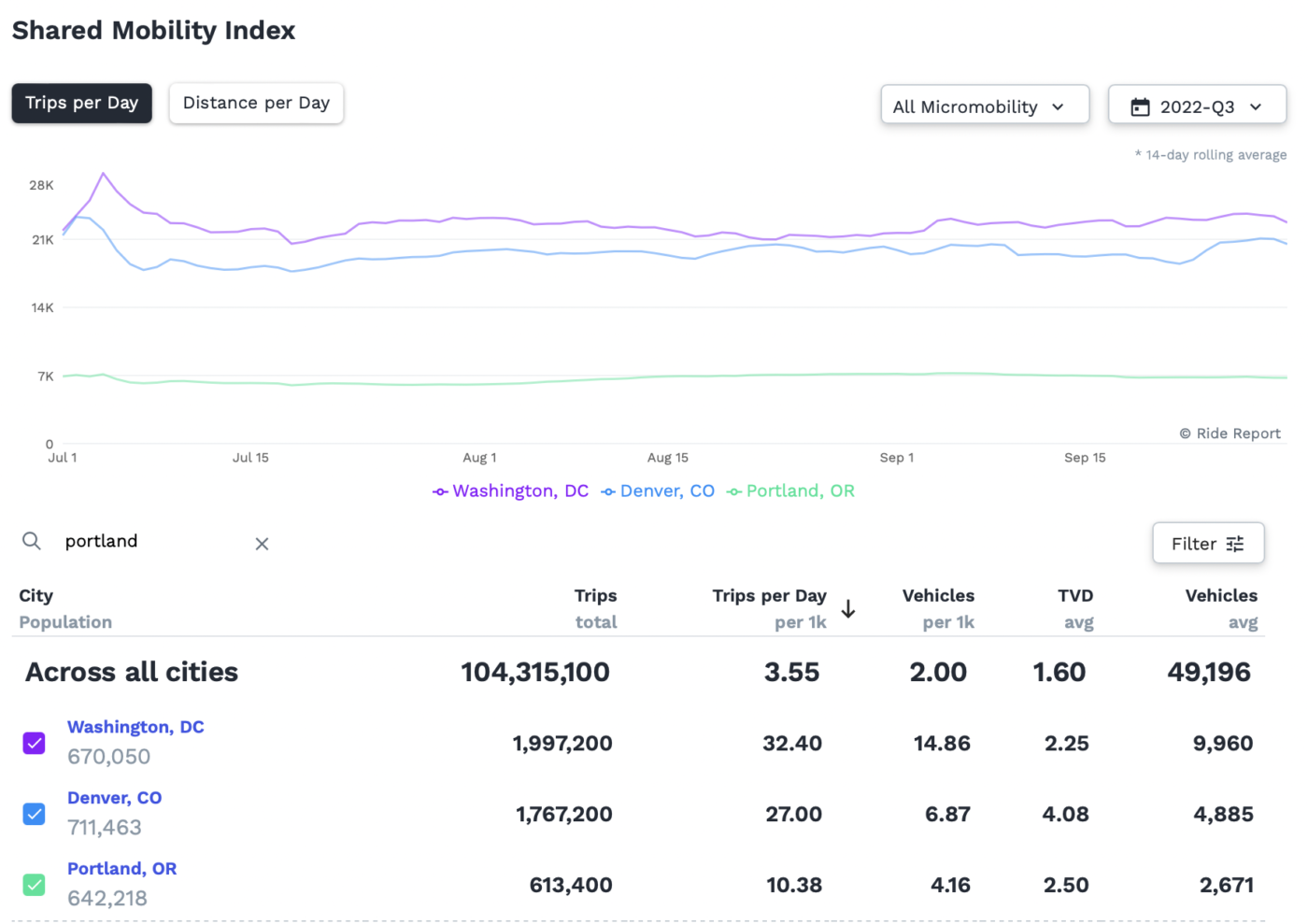
Still, compared to e-scooter usage in some similar-sized cities, Portland is falling short. Last summer, Denver saw a total of more than 1.5 million e-scooter rides, and there were about 1.7 million rides in Washington, D.C. There were only 391,600 rides in Portland during this time.
According to Nelle Pierson from Ride Report, this can partially be attributed to a lack of scooters in Portland compared to other cities. In Washington, D.C. there are about 13 vehicles per 1000 people, whereas Portland has about three scooters per 1000 people.
“To me, this says that when the city adds more scooters, we’ll see a lot more trips!” Pierson wrote in a message to BikePortland.
But e-scooter use in Portland is higher now than it has ever been, and that rise in ridership has been consistent with the decline in bike ridership in the city. Since scooter riders aren’t counted in PBOT bike counts, this could be one of the many reasons city bike ridership may have gone down over the last few years, and could call for a change in how the bike counts are done.
So: the people have spoken, and they like electric scooters. These programs are cropping up in smaller cities as well: Eugene just launched its first e-scooter program after more than three years of planning it, so clearly city transportation planners and scooter operators are still seeing these devices as a viable means of transportation (and profit) in lots of different urban environments.
Portland scoots ahead as other cities hit the brakes
The local scooter boom comes at a time when e-scooter rentals are in a precarious place in some cities around the world. Earlier this month, Parisians voted to ban e-scooters from the city’s streets. This was an effort supported by Paris mayor Anne Hidalgo, who has been lauded worldwide for her commitment to building out Paris’ bikeway system. But since the vote was held on a Sunday and had to be done in-person, less than 7.5% of eligible Parisian voters cast a ballot — so some people in Paris don’t feel like the decision was representative of what the population wants.
My friend Etienne, who lives in Paris, told me that there was “almost no communication” about the vote and his friends who used e-scooters are upset about it. He said the city could’ve done more to regulate e-scooters instead of banning them altogether.
“There are no real rules about circulation…they hit pedestrians sometimes because they usually ride on the sidewalk, but actually rules could’ve been made,” Etienne said.
A New York Times article about the Paris scooter ban posits that this could have an impact on other cities around the world who turn to the French capital for transportation inspiration. But barring an unforeseen plot twist, it seems unlikely that Portland will follow Paris’ lead on this issue.
The future of scooters in Portland

Though it’s still unclear which company PBOT will choose as its permanent scooter operator (or when they will decide), the existing companies are making some changes on their own terms. Spin recently upgraded their scooter supply, with a fresh orange paint job that bears resemblance to the newly-painted Biketown bikes. According to PBOT Public Information Officer Dylan Rivera, this isn’t an indication that Spin has been chosen to operate the permanent program.
“We will remain in the pilot program until we conclude the request for proposals for the permanent program,” Rivera wrote in an email to BikePortland. “Spin has chosen to upgrade their fleet, just as both Lime and Bird have done in the last 12-18 months or so.”
When PBOT finally does choose which company will operate the permanent scooter program, it will be based on a few factors, which are laid out in the 2022 Shared Micromobility Snapshot report. Companies will need to show that they are committed to:
- Reducing vehicle miles traveled (VMT) to combat climate change
- Promoting safety, responsible riding, and consumer protections
- Reducing racial disparities and advancing transportation justice
One company that may have a leg up in terms of climate action is Lime, who has partnered with B-Line Urban Delivery to recharge scooters by electric trike as opposed to fossil fuel-burning trucks. Last summer, Lime also upgraded their fleet of scooters to include a locking feature, and riders are instructed to lock their scooter up to a bike rack if they want to avoid a $25 fee. Eventually, this will be required component throughout Portland’s entire scooter system in order to “promote safety on the sidewalks and reduce pedestrian conflicts.”
PBOT’s micromobility report also states that the city will add more e-scooters to its fleet to “further increase transportation access” and require scooter companies to have all W-2 employees to “promote equitable hiring practices and workforce development.”
With equitable pricing programs and more scooters for rent, the main thing that could prevent more ridership is a lack of adequate infrastructure. In my experience, since I’m less comfortable and experienced riding an e-scooter than a bike, I’ll only ride a scooter if I know there’s going to be proper infrastructure nearly the entire route to my destination. A new paper from the National Association of City Transportation Officials (NACTO) provides some insight to city planners for building infrastructure for micromobility devices like scooters, and if Portland is planning to get serious with scooter ridership here, it would behoove them to take note.
Overall, scooters and bikes don’t have to compete with each other: the more people getting out of their cars, the better for all vulnerable road users. It will be interesting to see how Portland’s e-scooter program evolves as PBOT chooses the city’s permanent operator. Time will tell if the ridership increases will continue — and the way the city manages the permanent program will play a role in it as well.



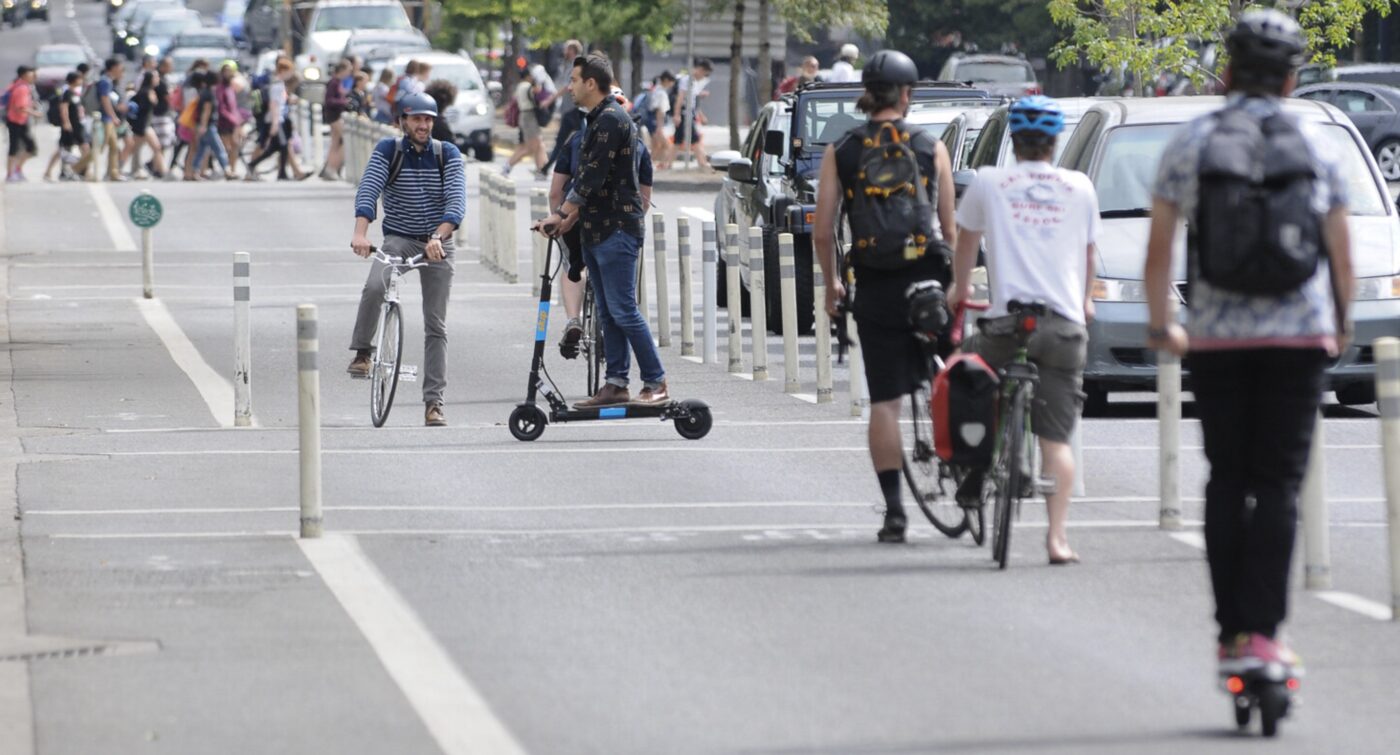
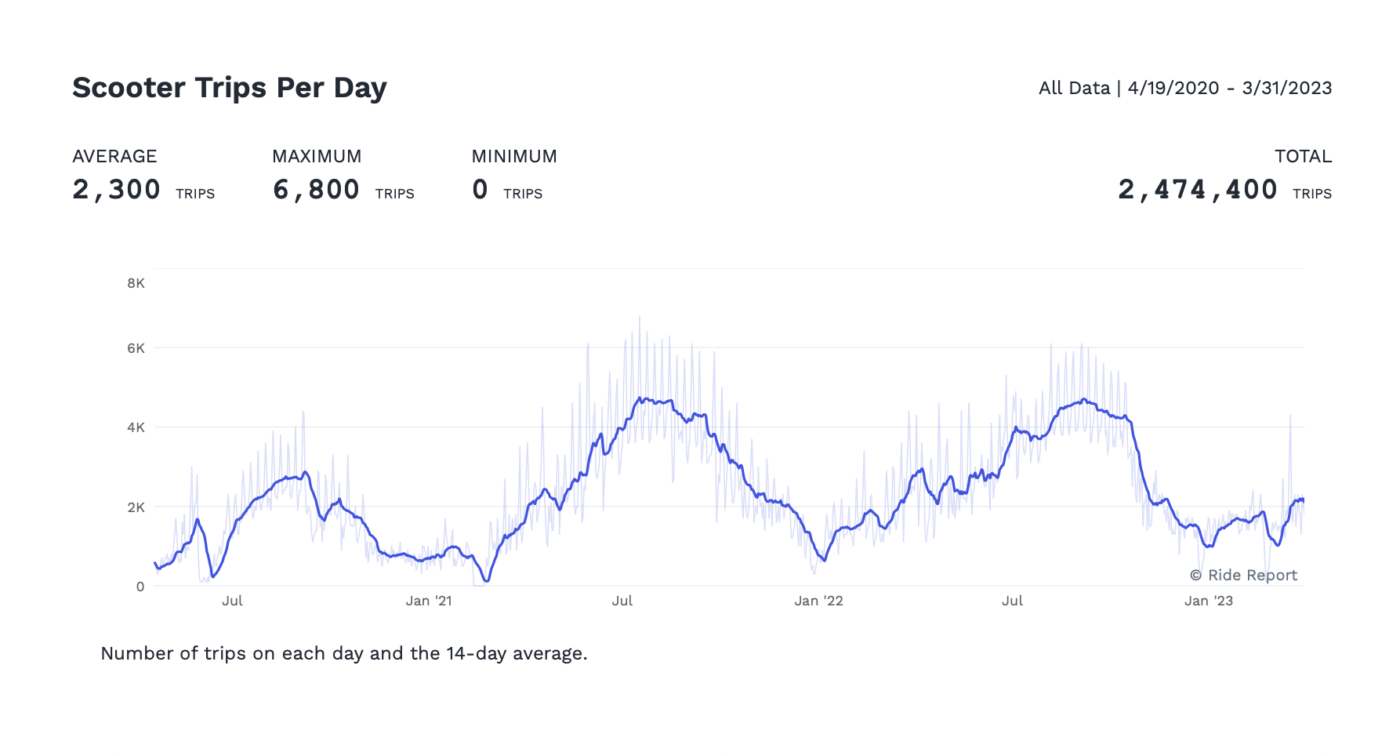
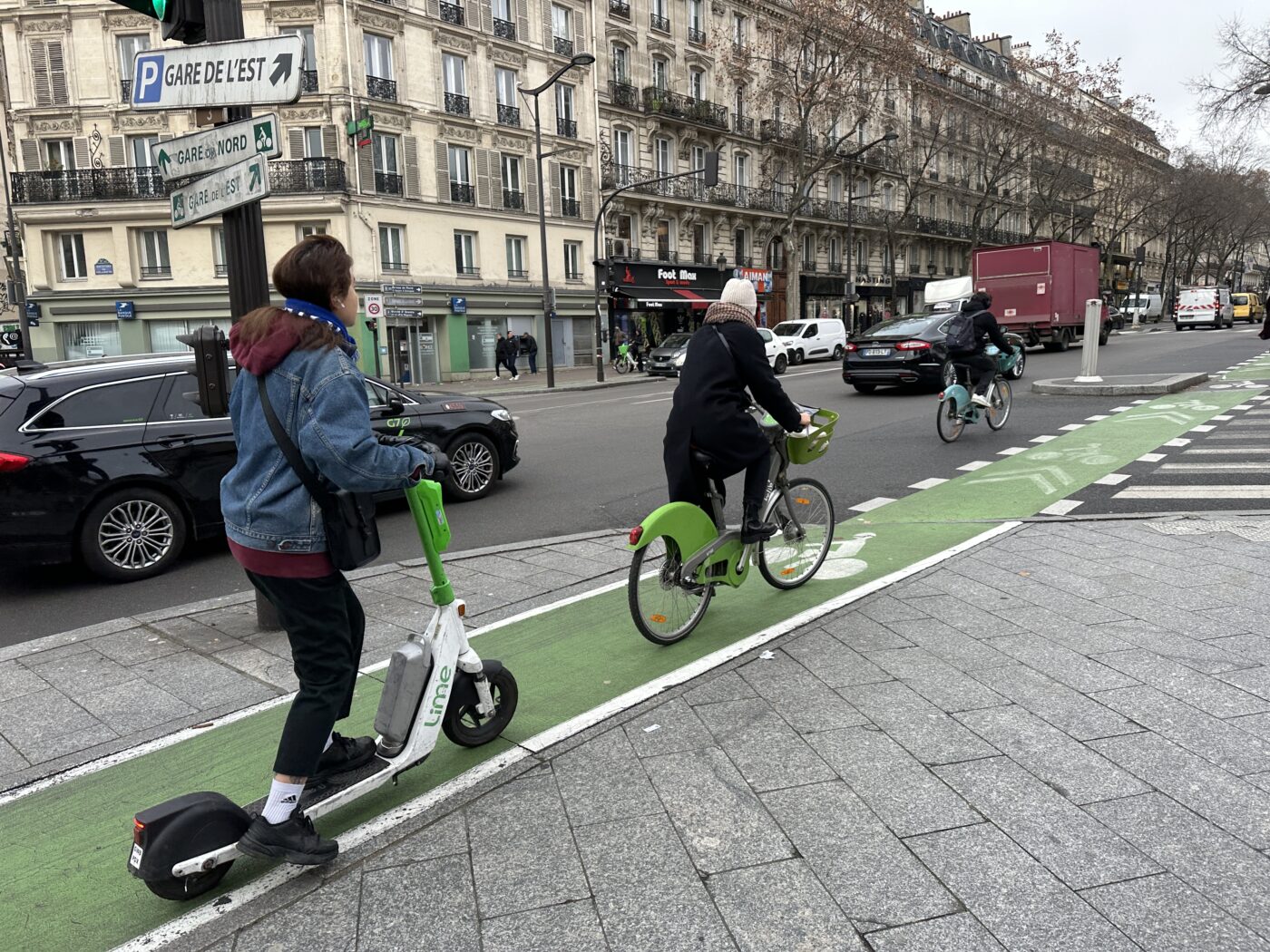
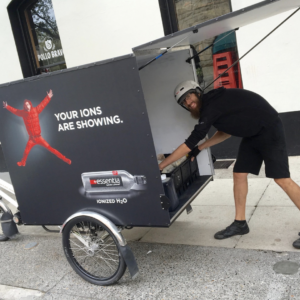
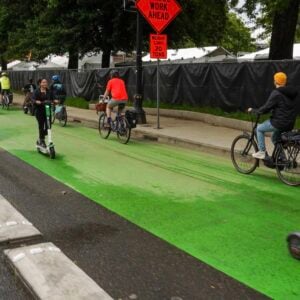
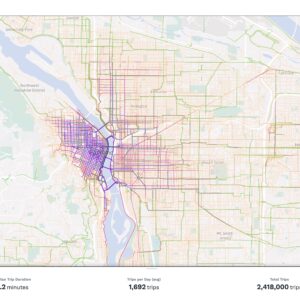
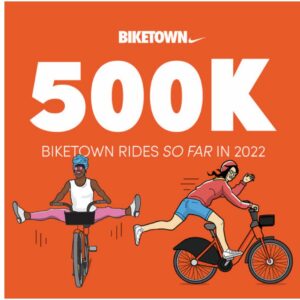
Thanks for reading.
BikePortland has served this community with independent community journalism since 2005. We rely on subscriptions from readers like you to survive. Your financial support is vital in keeping this valuable resource alive and well.
Please subscribe today to strengthen and expand our work.
I really hope we can have a robust discussion about the place (or not) of e-scooter rental services. The data out of Europe is pretty clear that they mostly replace walking; for the US it’s a little less clear. But they are decidedly NOT active transportation. IF we can prove that more scooters = less cars, fine. But I have my doubts that’s the case. And we’ve still got the problem that in most of the country the electricity used to charge scooters comes from burning coal. And then there’s the whole big ugly issue of producing/disposing/recycling the lithium batteries.
Paris just overwhelming voted to ban shared scooters.
“TechCrunch dived deep into scooter usage in Paris and found through a variety of studies that while e-scooters are incredibly popular, they mostly replace walking or public transit rather than car usage.”
Not that popular as 89% of Parisians voted to get rid of them
Should we ban them too?
https://techcrunch.com/2023/04/02/paris-votes-overwhelmingly-to-ban-shared-e-scooters/
89% of 7.5% is not a lot of percent.
It’s the percent that felt strongly enough about the issue to bother to vote. Most American voters let someone else elect Trump for them as well. If you don’t show up, someone else will decide for you.
The election was apparently a one-issue advisory referendum on scooters, maybe just the haters turned out? It seems kind of tactical to run it like that but hey, the Maire de Paris is alright with me. I’d swap even up for our guy.
Statistically, even if you do show up, someone else will decide for you.
(Despite knowing this, I’ve voted in every election since I turned 18.)
True but the fact remains that these little annoying things laying sideways on sidewalks all over Portland don’t really replace car trips.
I’d strongly recommend that anyone who uses a rented scooter to commute on a daily basis save some money and purchase a high-quality and durable scooter for as low as $600:
https://store.segway.com/ninebot-kickscooter-max-g
Moreover, scooter theft is not as much of a problem as bike theft so they are relatively safe to lock up to a porch with a decent u-lock.
I checked out the e-scooters you linked to and I was blown aaway by hte power and speed of some of these (I added the bold):
I linked to an e-scooter speed limited to 18.6 mph but in practice less than that.
“More casual users may ride for novelty — anyone who’s tried one of these devices would probably admit that they’re quite thrilling to use. And if that’s enough to get someone to replace a car trip, I think that’s great.”
You just slipped that in there, Taylor.
What we know from badly run surveys of e-scooter ridership conducted in Portland in the past is that more people use these scooters to substitute for walking and biking than for driving. PBOT buried this insight on p.20 of their report, but that says more about their boosterist mindset than about anything else.
We need to stop inserting wishfulness into every paragraph of articles about e-devices.
I nominate this for “Comment of the week”.
I’ve seen no evidence that scooter trips replace car trips. Until I do, I’ll have a hard time considering them anything but an expensive toy.
I routinely replace car trips with my scooter because I typically scoot only when riding a bike is not possible (for me). There is a double standard when it comes to e-scooters given that e-bikes have replaced bike trips but no one (other than 9watts) wrings their hands about one low CO2e transportation mode replacing another in this case.
Haha. You funny.
There is nothing co2 equivalent about bikes and e-scooters. The one exacts negligible climate or environmental penalties, while the other requires lithium mines, multinationals, rare metals, smart phones, electronic funds transfers, fleets of juicers, the grid, and the list goes on. Fossil fuels are embedded in each of those.
link to that report: https://bikeportland.org/2019/01/15/portland-releases-final-report-on-e-scooters-plans-to-bring-them-back-in-spring-294189
and my comment at the time:
From the report:
“While a large portion of e-scooter trips replaced car and ride- hailing trips, e-scooters also replaced lower-emission trips. Thinking of their last e-scooter trip, 42 percent of Portlanders said they would have either walked (37 percent) or ridden a personal bicycle (5 percent) had e-scooters not been available.
Finally, e-scooter operations likely added personal motor vehicle trips to the transportation system, to deploy and retrieve e-scooters each day. The extent and overall impact to the transportation system and traffic congestion is unknown.”
In the annals of boosterism it shall be recorded that the pull quote indicating 34% of Portlanders intimated they would have used an auto instead of the e-scooter—affirming the top listed objective—is splashed everywhere, while the quotes above suggesting a higher percentage (42%) would have walked or biked, is buried on p. 20 of the report.
Also relevant to note that 90% of scooter trips were three miles or less, and 56% were one mile or less. I know people drive embarrassingly short distances, but to think these are predominately vehicle miles is not accurate.
If we give the benefit of the doubt and assume all of these 1.2MM scooter miles replaced vehicle trips and the source of the electricity in the scooters was 100% renewable and all the servicing and charging infrastructure was powered 100% renewably, it looks like this would remove the equivalent of about 104 cars emissions from the road or 480 tons of CO2. Which is also equivalent to about 480 seats on round trip transatlantic flights, or a rounding error in emissions.
Assumptions: 1.2MM scooter miles / average vehicle miles traveled per year of 11,500=104 vehicles * 4.6 average tons of CO2 emissions per vehicle assuming average MPG of 22mpg in 2021 per epa.
Can someone backup and explain why PBOT needs to select one permanent operator? Why not either a transit agency-run program or market competition? If PBOT selects only one, then doesn’t that lay the foundation for future rate hikes like we’re now seeing with Biketown?
There was a time, way way back in ancient times, 2017 or so, long before the pandemic, when many cities were trying to entice commercial bike share and scooter share vendors to come to their cities by offering exclusive service monopolies, similar to garbage collection in Portland. PBOT, like most public transportation agencies, tends to stay in the same modus operandi for 20 or more years at a time.
Yes, BIG rate hikes on Biketown (except for free passes they give away) and empty racks most of the time at many locations. I’ve given up on Biketown.
Have “the people” really spoken?
If the city is telling people to lock rental scooters owned by a private business to bike racks, they aren’t bike racks, they’re scooter racks. We have bikeshare bikes that don’t live in the ample space laid out for them, scooters that just squat everywhere, and gig worker car services stopping in all sorts of traffic lanes. Is this the future?
I disagree with this characterization. When scooters were imminent, people raised the following concerns:
I don’t think those rise to claiming they would be an “agent of disaster”, and I don’t think there was any panic. There were significant and realistic concerns, and they all turned out to be valid. Scooters are not a disaster, but they do have some significant negative consequences, and the City of Portland refuses to acknowledge or address them. I think the tone of this article is misleading and unhelpful, I would appreciate a more critical look that scooters have had on our walking and biking spaces, and maybe some inquiry into what PBOT has/has not done to accommodate them or address them being left blocking sidewalks/ramps and being ridden on sidewalks.
I’ve given up trying to compare cities. Portland, its alternate namesake in Massachusetts, and DC all have very similar populations, but we have very different geography and a much smaller metro area than either of them.
In any of these cities, a trip from one end of town to the other will show that different parts of town have different needs. If micromobility trips of more than 20 minutes are the tail end of the distribution, then you can’t get everyone downtown, especially in Portland.
The naive solution to that is creating alternate centers, but we made a mistake: those hubs are crippled by freeways. For all the talk about our city center, realize that highways cut off Lloyd, Hollywood, Gateway, Arbor Lodge, et al from almost half of their natural connections. Now, they struggle, while neighborhoods that beat the Mt. Hood Freeway thrive.
TLDR: we are not any of those cities, and we do have infrastructure problems, but protected lanes probably don’t top the list.
…highways cut off Lloyd, Hollywood, Gateway, Arbor Lodge, et al from almost half of their natural connections…
If there were an agency concerned with personal mobility, call it the Portland Bureau of Just Walking Out To The Store, maybe those locations could get foot bridges across the freeways. The Wildwood Trail bridge over W Burnside cost $3.2 million. It’s literally a work of art.
The freeways have a longer span so let’s say a footbridge might cost $10 million. For $50 million we could connect neighborhoods to those town centers, link up bike routes and make Portland a more interesting place.
Suspension bridges would work for human scale loads and probably cost a lot less. We’re talking about an amount of money that would barely let ODOT warm up to wishing they could widen a freeway.
Similar issues of being cut off by highways (I-5 & SR500 etc) exist in Vancouver WA too…just remember WSDoTs adament promise to quickly build a pedestrian bridge to replace the 2018 closed off at grade signalized pedestrian marked crosswalk at 54th Ave/ Stapleton …even with the ´on call´ CTRAN…its still not under construction 5 years later. Then there is the 1970s planned pedestrian bridge across I-5 at Seventh Street…not built with the 1980s I-5 widening.
Everyone here saying that scooters are replacing walking is some kinda gotcha to the existence of scooters. So what if they aren’t replacing car trips? I sometimes ride my bike to the convenience store instead of walking. Does it make my bicycle some kind of novelty or toy? Does it make me a lazy individual? Maybe it does, but it saved me time and energy. We have found a way that a large number of people find convenient to travel faster and that has utilitarian value in of itself. We don’t live in some pedestrian utopian like Paris. Walking in Portland can be a chore/unpleasant to walk to certain locations and having a faster, convenient alternative is the a lot of people will choose.
Yeah, scooters have downsides and to this day I still have never ridden one. I don’t get them. It is annoying pulling up to a full bike parking area to see a couple scooters locked to the bike rack. But on the other hand it reminds me how limited of space is devoted to anything other than the car. Give us wider sidewalks, wider bike facilities, and more bike parking. There is no reason that bikes, scooters, and pedestrians can’t co-exist. We just need more leadership from the City.
“Everyone here saying that scooters are replacing walking is some kinda gotcha to the existence of scooters. So what if they aren’t replacing car trips?”
It is important to not overstate the benefits, count chickens, fall prey to boosterist cant, congratulate ourselves for battles not yet won. For all those reasons, and there are many more, it is unhelpful to *constantly* assert the substitute-for-car trope. It just isn’t so.
As you say, walking and biking are their own rewards, cause no harm, leave the climate untouched. And this is true whether we do one or the other, lots or a little. E-scooters, well, that isn’t so clear. If you tune out all the boosterist celebrations you discover that there are quite a few downsides that are worth keeping our eye on.
Almost all of your arguments supporting scooters can be used to defend driving as well. I don’t necessarily have a problem with that, just pointing it out.
Don’t call me lazy if I drive to the convenience store instead of walking. Walking is a chore.
Yes, but scooters aren’t cars. Scooters aren’t killing people at any rate cars do. The downsides of scooters can easily be mitigated unlike that of cars. Integrating scooters into our cities could be a positive thing if we address those minor downsides.
“Yes, but scooters aren’t cars.”
Yes, that’s true, but when I make the short drive to the local grocery store in my electric car*, the externalities are vanishing small; speeds below 25 on quiet streets and very little pollution, where the difference between a car trip and a scooter trip is as close to zero as is practical to measure.
I took your post to read “don’t judge me for my decisions; they are right for me”, a high-minded sentiment I (mostly) agree with and wish more people would share.
*I never actually do this, but my neighbors do.
people tend to drive EVs like they drive ICE vehicles and this is why the negative externalities of hulking e-SUVs and e-Trucks that DOMINATE our roads (and EV sales) are, simply, terrible.
Agreed. That is a big “if” that Portland is ignoring, but it is true that scooters could be a positive IF…
I’ll repeat what I said in another comment: Scooters are NOT Active Transportation. They may have their use, but lumping them in with forms of transportation that are physically healthier than driving is dubious bordering on deceptive. Walking is physically good for you. Same with cycling. Even E-bikes are a form of exercise. Scooters are exercise avoidance. The article points this out when Taylor quotes the reader who prefers his scooter over his bike because it’s “less hassle” and “you can ride an e-scooter in the summer without getting sweaty at all.”
Well duh.
“you can ride an e-scooter in the summer without getting sweaty at all.”
or you can ride an e-scooter and get plenty sweaty by pushing. like riding an e-bike, the amount of exercise on an e-scooter is a choice.
I’ve only seen someone doing this when their underpowered shared scooter struggles to get them up a short steep hill. Maybe less than 1% of the time from what I’ve observed.
And when I see people riding a biketown bike they mostly seem to have the juice turned on. The idea that active transportation necessarily requires a good cardiovascular work out is so 90s.
An e-bike without at least some power turned on is instantly the worst bike you’ve ever ridden, as if you’d forgotten to service your bearings since the Clinton years. Nobody will ride a Portland bikeshare rig without the juice.
Not everyone wants exercise to be part of their transportation. I’m glad it works for you but taking this gate-keeping exclusionary point of view won’t get us anywhere.
I think the issue is that these powered modes of transportation are anything but “active”.
I prefer more people to get out of cars an on *any* sub-100lb vehicle, regardless of power source – the more of us out there, the safer we all are.
But to call most type 2 e-bikes and e-scooters active transportation is simply wrong.
I’m not opposed to e-scooters – if someone wants to buy one and uses it for transportation , cool. I am opposed to subsidizing them under the guise they are solving some kind of problem. I personally don’t believe they are. And the manufacturing, charging, and battery disposal are environmentally destructive.
The real irony is that PBOT is deeply subsidizing TNCs (Lyft & Uber) relative to their negative externalities while imposing draconian fees on e-scooter rentals that definitively discourage their use. If it were up to me there would be draconian fees on TNCs that subsidize public bike and scooter rentals but then again I care far, far more about the common good than “the market”.
What is the relationship between this record high in e-scooter usage and the huge drops in bike counts citywide?
And what is PBOT doing to curtail riding on sidewalks? If they can deploy existing technology in San Francisco, why not Portland.
https://www.sfmta.com/blog/scooter-sidewalk-riding-detection-technology-demonstration
“The SFMTA held a public demonstration of e-scooter sidewalk riding detection technology on Thursday, May 12, 2022 involving the three permittees: Lime, Scoot, and Spin. The demonstrations were required as part of the SFMTA’s Powered Scooter Share Program, which ensures that shared scooter operations support the City’s recovery from the pandemic in a safe, sustainable, and equitable way. This includes keeping our sidewalks safe, particularly for our most vulnerable pedestrians and road users.
Scooter sidewalk riding is illegal pursuant to the California Vehicle Code Section §21235(g) (and in Portland) and poses significant risk to pedestrian and scooter rider safety, particularly for older adults or persons with disabilities using the sidewalk. Sidewalk riding detection technology enables the device to detect sidewalk riding in real time. Once detected, the scooter automatically slows the rider to a safer speed. We believe that sidewalk riding technology has a strong potential to curb usage scooter riding in San Francisco and may be the most effective way to reduce scooter share sidewalk riding in the City.
https://www.intelligenttransport.com/transport-news/137745/lime-ai-computer-vision-e-scooter-safety/
Lime announced that they have technology that detects when their scooters are riding on sidewalks despite prohibitions in PBOT rules.
“The initial application for Lime Vision will be Lime’s Advanced Sidewalk Detection, which can accurately detect when a rider is using an e-scooter on a pavement in real-time, alert them via an audible sound and slow the e-scooter, preventing conflict with pedestrian.”
Spin was deploying something similar in 2021.
My question is what is PBOT doing to curtail camping on sidewalks? Frankly, that has a lot bigger negative impact to me as a pedestrian than the very occasional scooter rider I see on sidewalks.
Is there a mistake in this paragraph?
“During the last two summers…the daily average number of e-scooter trips was around 4,300…That’s significantly lower than…1,500 Biketown trips …(which) rose to 2,400 during the same period in 2022.”
Just visiting downtown, Alberta and north Portland last week on separate trips…I dont see how anyone can really depend on e-scooters for dedicated mobility, as there were very few deployed for the ṕass by’ / spur of the moment user (vs hunting them down on their apps.) as compared to past years. This is similar to what I am seeing in San Francisco this week. My last trip to Austin Texas had a much more e-customer friendly supply.v